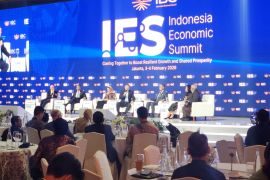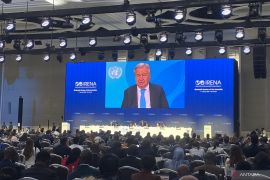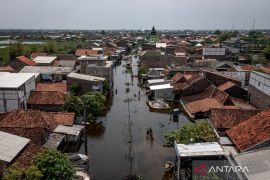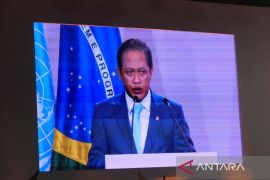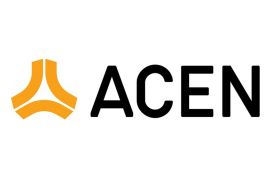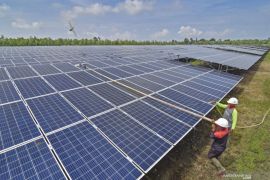Its strength lies in various universities in the country, which has been taking the lead to make energy-saving cars in response to rising demands for energy efficiency.
Among the universities that have successfully developed these cars are the University of Indonesia (UI), University of Gadjah Mada (UGM), Bandung Institute of Technology (ITB), Sepuluh Nopember Institute of Technology (ITS) and University of Sumatera Utara (USU).
President Susilo Bambang Yudhoyono said he appreciated the achievements made by various universities in the country, as he acknowledged when joining in a road test of the UGMs electric car, the "eSemar Xperimental" in Yogyakarta on May 25, 2012.
"Smooth!" said the head of state after the short road test of the six-passenger and rechargeable battery-powered car, along with his cabinet members, as revealed on the universitys website.
The UGM lecturers and students did not only succeed in developing eSemar Xperimental, but also other energy-saving car autos, including an electric racing car, called the Arjuna.
The same achievement has also been reached by UI students. Among the energy-saving car models that members of the Chemical Engineering Car (Chem E Car) group of UI have reportedly created since 2012 are "Altair", "Rhino" and "Nayaka".
While Altairs source of energy is oxygen from the air, Rhino is fueled by such sources of electrical energy as found in hydrogen peroxide, copper, and magnesium.
Like UI, the ITS students have been able to build a number of energy-efficient cars, such as "Sapu Angin", "Antasena", and "EC ITS".
This Surabaya-based institute of technology has also won the Asia Pacific energy-saving car competition, the "Shell Eco Marathon Asia 2012", at Sepang, Malaysia.
They have not only developed car models using bio-diesel fuel, but also electricity called EC ITS. This electric car model was launched by Education Minister Muhammad Nuh on January 26, 2013.
"EC may stand for easy or electric car. It means making an electric car is not difficult, as has been proven by ITS students," Nuh said.
Indonesias ability to build energy-saving car models is not only dominated by university students in Java. The students of USUs Faculty of Engineering, for instance, have also succeeded in making the cars fueled by ethanol and diesel.
The Medan-based state universitys Horas team had even won the race sponsored by SEM Asia 2014 for Urban Concept categories and gained the runner-up position for diesel fuel category in the race hosted by the Philippines in Manila in February.
Further, USU has also been developing ethanol-plus-water as a source of fuel for motorbikes. The state-owned oil and gas company Pertamina, as announced by USU, has pledged to support the research project.
President Yudhoyonos message, delivered to university students participating in the SEM Asia two years ago, remains relevant: "Keep on developing the energy-saving cars" and "Support the governments energy efficiency program".
The achievements that have so far been accomplished by those university students have brought hope and paved the way for Indonesia to produce its own energy-saving cars for its domestic market in the future. ***3***
(T.R013/INE)
(T.R013/B/KR-BSR/F001) 31-05-2014 10:20:51
Reporter: Rahmad Nasution
Editor: Fardah Assegaf
Copyright © ANTARA 2014

